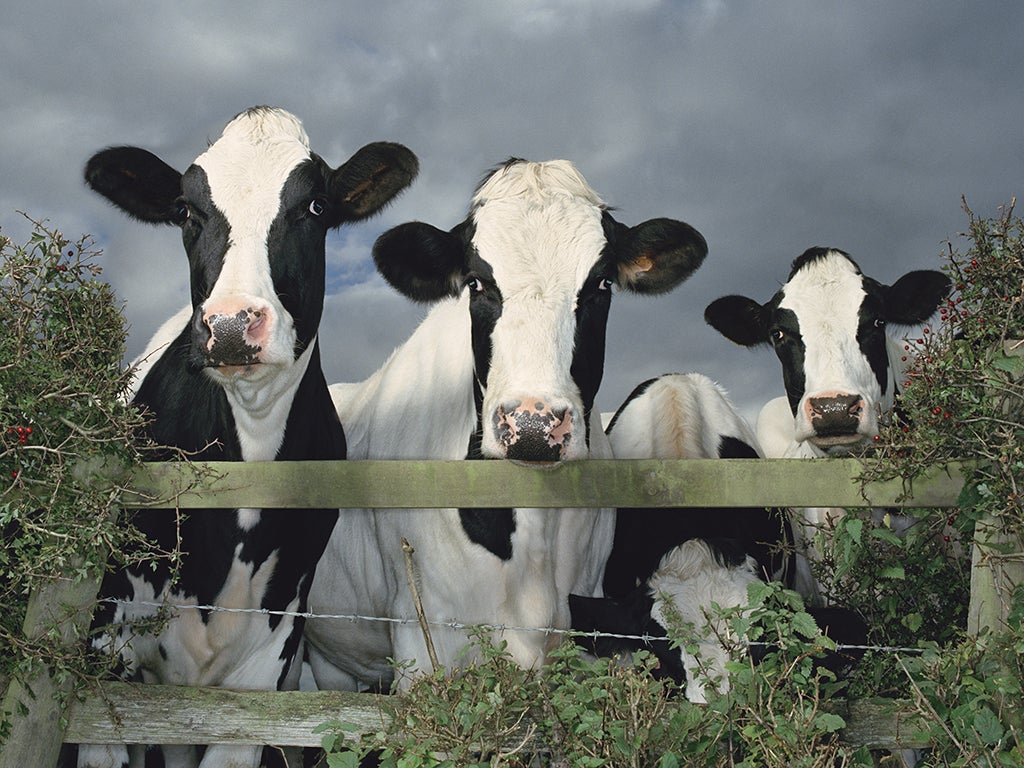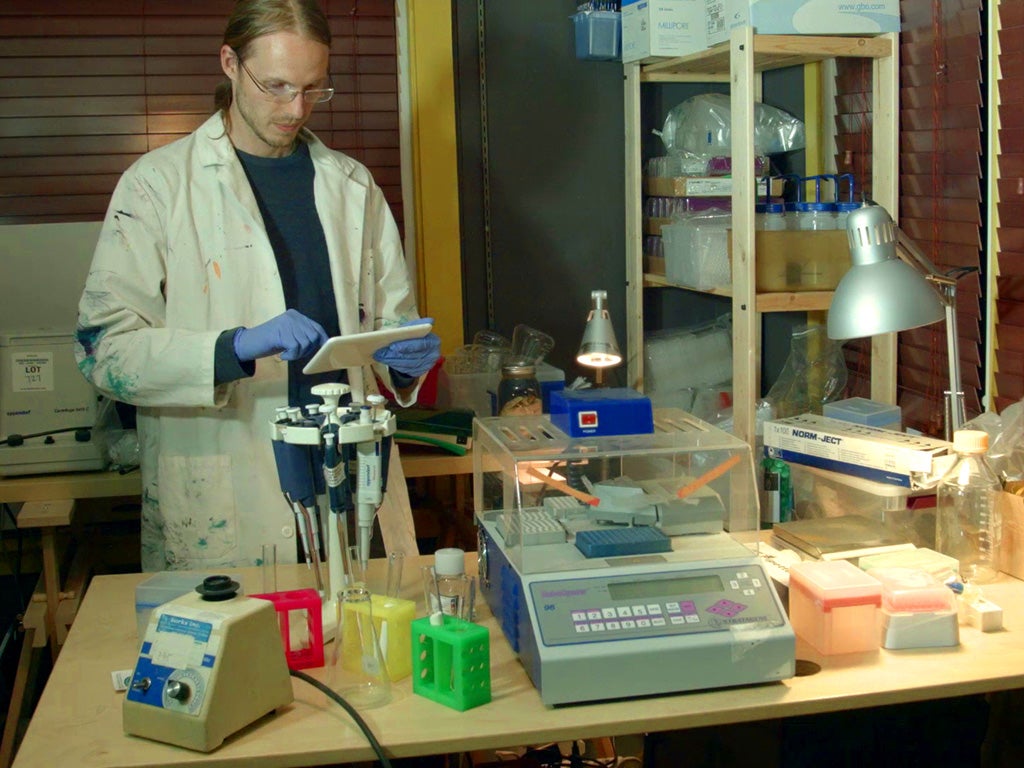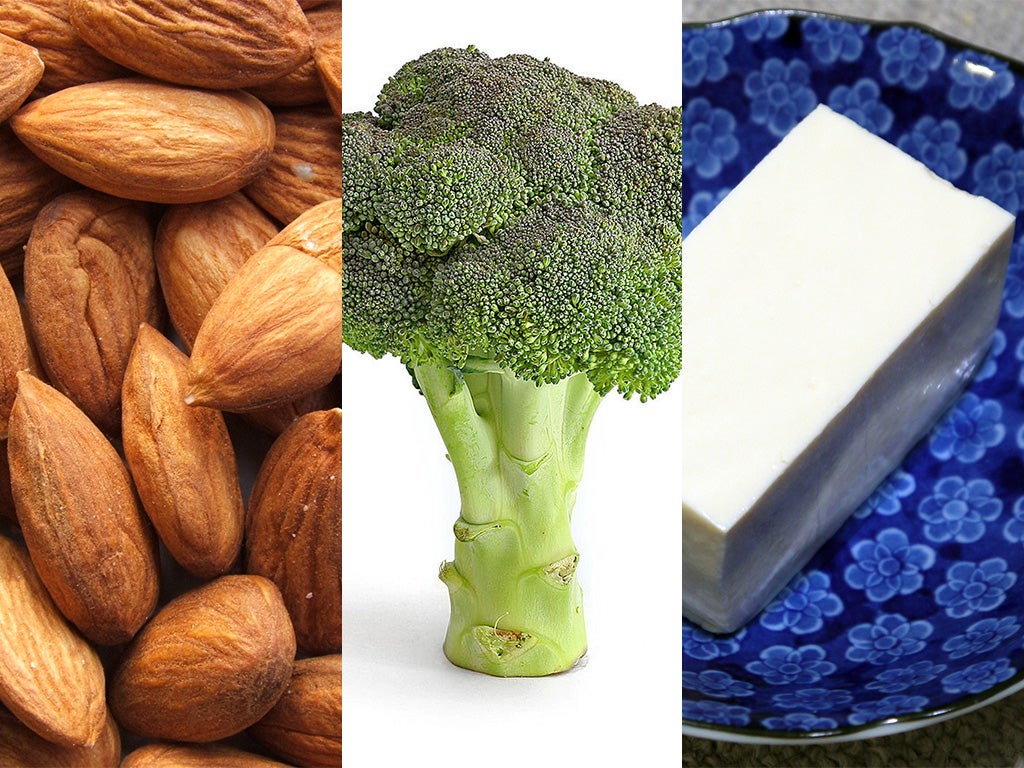Should we be drinking milk? Arguments for and against dairy
Some people argue that no adult mammals are conditioned to consume dairy, especially not from another animal. There are also fears surrounding the hormones and antibiotics present in modern dairy. So should we look at the alternatives?

It was once seen as an integral part of a healthy diet. White-moustached grinning children on billboards, the ultimate accompaniment to your lunchtime sandwich or a hot curry, and essential with a brew.
Nowadays, falling popularity means milk is even cheaper than water, putting huge pressure on the dairy industry.
Consumption of dairy in the UK has dropped by 30% over the last 20 years, with soy, rice and nut milks enjoying a surge in popularity. Food scientists are constantly finding new ways to develop vegan alternatives to milk, butter and cheese, using everything from cashew nuts and agar to genetically modified yeast to replicate the flavour and texture. So when did good ol’ fashioned cows’ milk start getting such a bad rep?

Perhaps the backlash against milk started with the the low-fat movement in the 1970s. Suddenly fat was the enemy, and anyone who’s anyone knows that dairy contains fat. Semi-skimmed and skimmed milk, as well as 0% fat yoghurts and ultra-lite cheeses, flooded the market, and suddenly women would baulk at a friend if she was brazen enough to take a drop of full-fat in her coffee.
Then came the age of intolerance. More people started to seek alternatives to milk as they struggled with dairy intolerance, citing digestive issues, lethargy and skin conditions. Those who cut out dairy often say that problems like acne, bloating or even catarrh disappear within weeks. “I used to get bloating and stomach cramps after having dairy,” said food blogger Ariana Gernet. “It improved when I cut it out - my skin got much better too.” Marketing executive Samantha Joy agrees: “I swapped cow’s milk for almond milk - my IBS is completely manageable now.”
With the backlash against dairy, so too came a wave of innovations in the effort to find a palatable alternative to milk, butter, cheese and yoghurt. Whereas in the past dairy-free milk was gloopy and cheese nothing but an anaemic paste, there is an increasing number of very palatable alternatives on shelves. In California, a group of ‘biohackers’ have even found a way to make, as they call it, Real Vegan Cheese. They use bakers yeast with water and vegan oil to faithfully mimic the cheese making process and make a credible alternative that, they say, is a far more sustainable food source.

Nutritionist Bethany Eaton spotted the gap in the market while seeking dairy-free alternatives, and founded the CO YO range of coconut yoghurts and ice cream. It quickly became a cult product, and now even has a partnership with Pret a Manger. “I think people are becoming more aware of their health and how eating dairy can cause issues with skin, digestive problems,” says Eaton. “They are looking for alternatives that taste good and are actually a good alternative to eating dairy. Some people that eat CO YO don’t have to avoid dairy but once they try it they say they would never go back to dairy yoghurt.”
It is thought that one in five people have some kind of dairy intolerance, although only 5% have a lactose intolerance. Lactose intolerance is caused when people don’t produce enough of the enzyme lactase needed to break to down the lactose, or sugar, in milk so that it can be more easily absorbed. The lactose stays in the digestive system where it ferments with the bacteria, producing gases and leading to flatulence, bloating, cramps and even diarrhoea.
A study commissioned by the a2 Milk Company showed that, while 10 million people have cut dairy out of their diets, 53% of them relied on self-diagnosis, and assumed their discomfort was being caused by lactose intolerance.
However, it is thought that a larger proportion of people have an inability to digest casein, a protein found in dairy. The casein in cow's milk is divided into two types - A1 and A2. Interestingly, only cows milk in the western world contains A1, due to an evolution of the protein over the years as cows were bred to be larger and produce greater quantities of milk.
All other milk, including human, goats and sheeps milk, contains A2 casein, which is easier to digest, perhaps explaining why many people who struggle with cows milk find they are fine with goats and sheep. The a2 Milk Company claims that by removing the A1 protein, its milk is easier to digest and therefore suitable for those who struggle with dairy but are not lactose intolerant. Unfortunately, the symptoms of both casein and lactose intolerance are similar, but a blood test can indicate or rule out lactose intolerance.
Many take a more purist view when it comes to milk and dairy, saying that no adult mammals are conditioned to consume dairy, especially not from another animal. There are also fears surrounding the hormones and antibiotics present in modern dairy. Advocates of the alkaline diet say that cow’s dairy is acid-forming, altering the body’s pH balance and thus weakening bones, instead of strengthening them as traditionally thought. Some research suggests that countries with higher consumption of dairy also have higher rates of osteoporosis. Professor Jane Plant, one of the worlds leading geochemists, who had battled breast cancer five times, credits a dairy-free diet with her recovery after studying low rates of breast cancer in China.
Steve Bessant, Nutritionist and Co-founder of The Coconut Collaborative, a range of dairy-free yoghurts, says that the pasteurisation process actually denatures the enzymes that help to break down the proteins in milk. “This leaves milk proteins undigested in the small intestine, damaging the delicate lining of the gut and causing inflammation in the short term, and in the long term affecting the bodies ability to absorb key nutrients. Although milk contains calcium, as little as 25% is actually absorbed by the body. Just because a food contains nutrients it does not mean they get absorbed - you are not what you eat, you are what you absorb.”
If you have eliminated dairy, there are plenty of ways to boost your calcium and Vitamin D levels. Foods like tofu, almonds, leafy greens and broccoli are good sources of calcium, and many nut milks are now fortified as well. Vitamin D is present in eggs, mushrooms, salmon and, of course, sunshine.

Many doctors and nutritionists, however, are advising people to think twice before they abandon dairy completely. “I find dairy has been partly demonised by “free-from” Nutritionists and Paleo enthusiasts,” says Miguel Toribio Mateas, Herbalife Consultant Nutritionist and Chairman of the British Association for Applied Nutrition & Nutritional Therapy.
“Some claim humans haven’t adapted to it, but the fact is that humans are amongst the most adaptable organisms on the planet. Additionally, there is mounting clinical evidence that some probiotic bacteria in fermented dairy enhances immunity. On that basis, I am all up for the use of full-fat fermented dairy, which is also a source of vitamins D, K and A.
“As for overall dairy, I wouldn’t say a robust no. Looking at literature, there are more studies finding benefits than problems. A meta analysis published in 2011 in the American Journal of Clinical Nutrition found that dairy was not associated with increased mortality. In fact, the study found that those who had dairy had decreased risk of cardiovascular diseases, including coronary artery disease and stroke.
“Another study published in the British Journal of Nutrition in 2010 found that fermented dairy reduced the duration of respiratory infections in the elderly. Japanese people who consume dairy seem to be less prone to developing Alzheimer’s.”
Intolerances aside, what about that other burning question on our lips - will dairy make you fatter? It seems not. In fact, says Toribio-Mateas, children who drink milk during their early teens (as observed in a three-year study on 2,455 children from 10-13 years old) were less likely to become obese.
“People tend to cut dairy out of their daily diets because they see it as a high-fat ingredient that adds calories to their meals,” says independent nutritionist Fiona Hunter. “But this is a common misconception, and in fact the high protein content of dairy products is extremely beneficial for keeping us fuller for longer and giving us the energy we need to get through the day.”
The answer for most people will have to be a matter of trial and error - listen to your body and see what suits you, even if it is a combination of dairy and dairy-free alternatives. Dr Sarah Schenker, a registered dietitian and nutritionist and member of the British Dietetic Association, says: “I think it is fine to include dairy alternatives where you want to. So some people may like to eat Greek yogurt mixed with berries as a filling snack, but prefer the nutty taste of almond milk on cereal.”
“I would say that unless you have a medical reason for avoiding dairy, such as lactose intolerance of cow's milk protein allergy, there is no need to avoid all dairy.”
Join our commenting forum
Join thought-provoking conversations, follow other Independent readers and see their replies
Comments
Bookmark popover
Removed from bookmarks